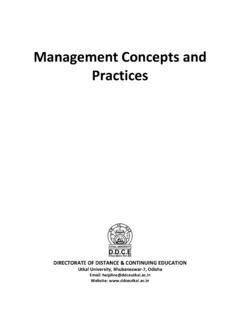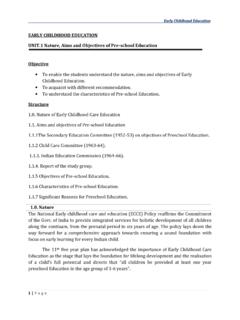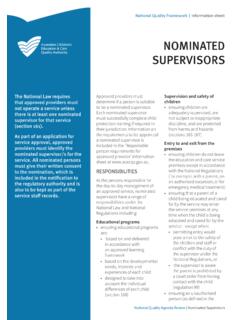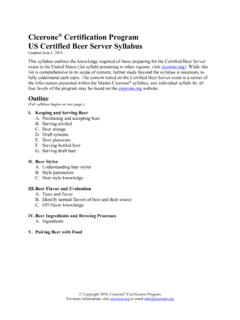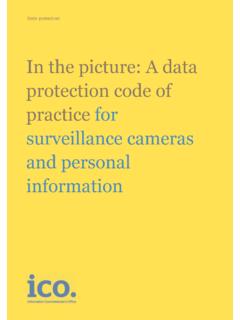Transcription of PAPER VIII - DDCE, Utkal
1 1 PAPER viii UNIT-1 educational Management: Meaning, Nature and Scope At the end of this unit you will be able to: Explain the meaning/concept of Management Describe the nature of Management Enumerate the functions of Management Explain the meaning of educational Management Discuss the nature and scope of educational Management Enumerate the objectives of educational Management Illustrate the functions of educational Management Understand the evolution of management concepts in education Explain the meaning of educational Administration Describe the functions of educational Administration Describe the nature and scope of educational Administration (ia) What is Management? Etymology: The verb 'manage' comes from the Italian maneggiare (to handle, especially tools), which derives from the Latin word manus (hand). The French word mesnagement (later m nagement) influenced the development in meaning of the English word management in the 17th and 18th centuries.
2 Management in business and organizations is the function that coordinates the efforts of people to accomplish goals and objectives using available resources efficiently and effectively. Management comprises planning, organizing, staffing, leading or directing, and controlling an organization or initiative to accomplish a goal. Resourcing encompasses the deployment and manipulation of human, financial resources, technological resources, and natural resources. Management is also an academic discipline, a social science whose object of study is the social organization. 2 Another way people talk of management is to describe it as an art, a science, an organisation, a person, a discipline, or a process. Let us consider each of these in turn. Management as an art As an art, management is about carrying out organisational functions and tasks through people. This art involves the application of techniques in: human and public relations the delegation of an authority: assigning and sharing responsibilities and duties communication: including decision-making and problem-solving.
3 Managing change. Management as a science Management here is concerned with establishing a philosophy, laws, theories, principles, processes and practices which can be applied in various situations, including schools. Management as an organisation As an organisation, management is about creating formal structures and an establishment based on a mission (or goals), objectives, targets, functions and tasks. For example, social and welfare organisations in government management can refer to education and health services, whilst public security management services could refer to the police and military. Management as a person Managements may be seen as a person or a group of people. For example, a teacher could say 'The school management has changed the timetable in the middle of the term'. This could be referring to the head alone, or to all the senior staff, or it could refer to the members of the board of governors or school committee.
4 In schools with several promoted staff a 'senior management team' might be formed in much the same way as a government has a cabinet of ministers. Management as a discipline In this sense, management is a field of study with various subjects and topics. Knowledge, skills and attitudes in management can be acquired through learning, from experience and from certified courses. Management is a collection of processes, including such things as decision-making, problem-solving and action-planning. These processes involve the management of resources including human, material, financial and time. These processes are also known as the functions of managers. Management may be briefly described according to its, Basic functions [ Management operates through five basic functions: planning, organizing, coordinating, commanding, and controlling. 3 Planning: Deciding what needs to happen in the future and generating plans for action.]
5 Organizing: Making sure the human and nonhuman resources are put into place Coordinating: Creating a structure through which an organization's goals can be accomplished. Commanding: Determining what must be done in a situation and getting people to do it. Controlling: Checking progress against plans. Basic roles Interpersonal: roles that involve coordination and interaction with employees Informational: roles that involve handling, sharing, and analyzing information Decisional: roles that require decision-making Skills Developed Political: used to build a power base and establish connections Conceptual: used to analyze complex situations. Interpersonal: used to communicate, motivate, mentor and delegate Diagnostic: ability to visualize most appropriate response to a situation Leadership: ability to lead and provide guidance to a specific group Technical: Expertise in one's particular functional area.
6 (i b) What is educational Management? Meaning: While Education is the provision of a series of learning experiences to students in order to impart knowledge, values, attitudes and skills with the ultimate aim of making them productive members of society, educational Management is the process of planning, organising, directing and controlling the activities of an institution by utilising human and material resources so as to effectively and efficiently accomplish functions of teaching, extension work and research. Nature and Scope: The National Policies on Education seek to bring about a social, economic and cultural development in society by focusing on human resource development through education. Education, therefore, must have more relevant curricula, be dynamic, and empower students to bring about desirable social changes while preserving the desirable aspects of our existing culture.
7 4 The national developmental goals require the professional management of education to bring about the effective and efficient functioning of educational institutions. The scope of educational Management is wide and includes the history and theories of management science, roles and responsibilities of an educational manager along with the requisite managerial skills. educational Management focuses on: the study of theories of management science which define and describe the roles and responsibilities of the educational manager and the development of managerial skills. the study of educational planning at macro levels, its goals, principles, approaches and processes and on institutional planning and educational administration at the micro level. decision making, problem solving, communication, information management and effective team building. Planning of curricular and co-curricular activities, curriculum and academic calendar Maintenance of school records, evaluation of students achievement Effective allocation of financial resources and the planning of the budgets of institutions.
8 educational Management aims at: Achieving an institution s objectives Improving the processes of planning, organising and implementing within the institution Creating, enhancing and maintaining a positive public image of the institution. Optimal utilisation of human resources (administrators, non-teaching staff, teaching staff and students) Enhancing the efficiency and effectiveness of infrastructure Enabling job satisfaction Creating and maintaining a congenial and cohesive atmosphere Managing interpersonal conflicts, stress 5 Improving interpersonal communication. Building a relationship with the community. The functions of educational Management are largely based on Henry Fayol s 14 Principles of Management, namely, Division of work Authority Discipline Unity of command Unity of direction Subordination of individual interests Remuneration Centralisation Scalar chain Material and social order Equity Stability Initiative Esprit de corps These functions can be encapsulated into the following 5 functions: 1.
9 Planning: is the process of setting objectives and determining the actions in order to achieve them. Planning is anticipatory in nature and sets priorities. It is proactive rather than passive. Planning asks the following questions: What? When? Where? By whom? How? while following a series of steps: 6 Defining Objectives (setting objectives or goals) Determining the current status with respect to the objectives (being aware of opportunities) Determining planning premises (analysing the situation for external factors and forecasting future trends; generation of future scenarios) Identifying alternative (best alternative to accomplish the objectives) Choosing an alternative (selecting the course of action to be pursued) Formulating support plans (arranging for human and material resources) Implementing the plan (action stage which also involves evaluation) 2.
10 Organising: is the process of combining the work which individuals or groups have to perform with facilities necessary for its execution such that the duties performed provide the best channels for efficient, systematic, positive and co-ordinated application of available effort. Organising is characterised by: Division of work or specialisation: Activities are assigned to different people who are specialists in that area, for specialisation improves efficiency. Orientation towards goals: it harmonises the individual goals of employees with the overall goals of the institution. 7 Composition of individuals and groups: individuals are grouped into departments and their work is coordinated and directed towards organisational goals. Differentiated functions: the entire work is divided and assigned to individuals so that the organisation s objectives are achieved. While each individual performs a different task, each one also coordinates with the tasks of others.




